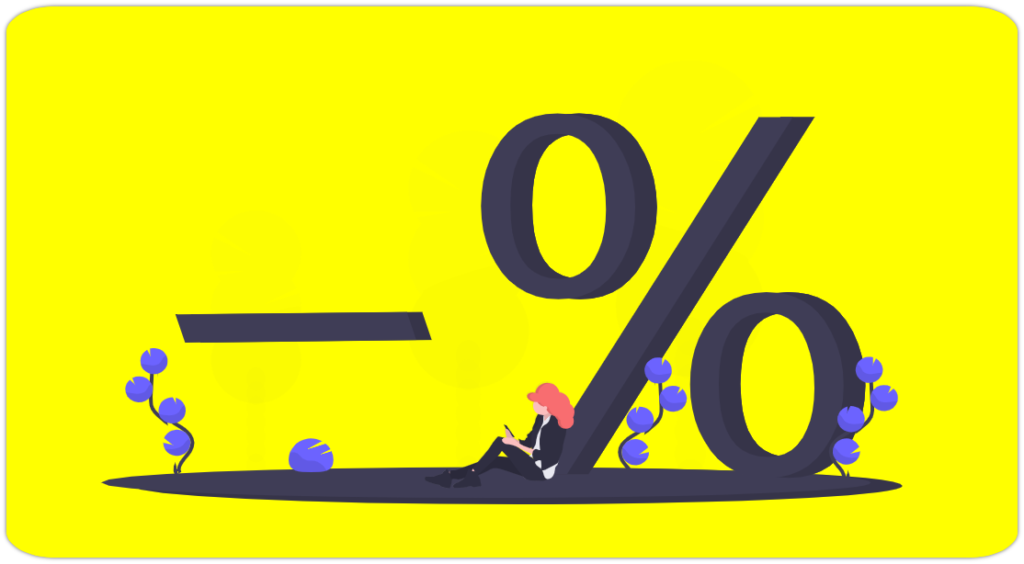Should you be entirely invested in equities, or should you not invest at all and wait for an opportunity to buy when the market contracts and stocks become undervalued? These are common questions from investors, especially in times when things don’t seem to go normal and investors become skeptical.
The truth is that it entirely depends on the attitude of the investor. Many investors who are confident about the market in the long run and don’t prefer to actively invest may not hold any cash at all, while investors who are sure that the market will contract in the foreseeable future are going to at least have a certain part of their portfolio as cash.
This article is going to help you asses your personal circumstances and how you should act in regard to this question.

Why Should You Hold Any Cash?
First of all, why shouldn’t investors have all their money invested? One of the primary reasons is that cash does not only act as some sort of diversification in an investment portfolio but also offers the opportunity to take additional exposure on investments that become undervalued.
The principle is rather simple: Whenever investors have all their capital invested in assets such as equities, then they are also entirely exposed to the risk of losing a substantial amount of money once a stock market crash occurs.
Adding additional diversification by investing in other asset classes like bonds, real estate, and commodities spreads the risk of facing severe losses. Of course, proper diversification can help with smoothing out losses but it may not protect you entirely from losing any money in times of economic downturns.
The main reason to stay in cash is that you don’t want to miss out on opportunities as soon as they appear. In the case of a stock market contraction, investors may see many businesses, which are now priced at a discount of their value as a result of their falling stock prices. Investors who held a part of their portfolio in cash will now be able to buy those underpriced stocks (or other assets) and therefore, carry out a higher return as soon as the market recovers again.
At least for active investors, there are good reasons to keep a percentage of your investment portfolio in cash. In fact, many of today’s greatest investors are pursuing this approach.
As of mid-2019, Warren Buffett’s Berkshire Hathaway has $112 Billion in cash and equivalents, which is the most amount of cash in the company’s history. While Buffett prefers to have at least $20 billion in order to stay financially stable in cases of sudden catastrophes, it also means that he currently is sitting on $92 billion in cash, waiting for good opportunities to arise.
Investors might come up with the question of why he doesn’t put his cash in a more conservative investment like index funds or financially solid stocks to at least collect a few percentage points while waiting for better opportunities?
Big investors like Warren Buffett are in a very different position than ordinary investors. He has such an abundance of excessive cash because it is hard for him to find any attractive investments, which are worth to him. The investment scopes of such investors are very limited as they can only put their money in much bigger investments to really achieve a noticeable return.
Smaller companies are considered the ones that usually offer higher returns because they are often able to grow faster. However, the effort and time to find small companies that are both great and offered at an attractive price are simply not worth it for big investors, who have to manage a much larger investment capital than the market cap of those businesses.
For example, if Warren Buffett invested in a $190 million market cap company and its value doubled, the increase would only make up for a return of about 0.2% in Berkshire Hathaway’s portfolio. It just isn’t worth his while, considering the amount of research, which has to be done to find such a stock. That is why he is simply not able to invest in small-cap stocks.
When Berkshire Hathaway has $112 Billion in cash and equivalents, it means that the funds are located in asset classes that are highly liquid (easily accessible). Therefore, the cash that Berkshire Hathaway currently holds, does earn them interest as it is most likely invested in highly liquid investment instruments, even if the percentage of that interest isn’t significant.
As a result, there a good reasons why you may want to have a proportion of your investment portfolio in cash but in order to effectively take advantage of your cash reserve when the right times arise, you would need to clearly understand what investments you are going to aim for when as soon as they become attractive.
Are There Any Good Investment Opportunities?
Wise investors know that stocks can be bought with different price tags at different times. It comes down to you to determine if there are any good opportunities to make in the future and how companies are currently priced right now. The more cash you hold in your investment portfolio, the higher the opportunity cost for you to miss out on potential returns.

As mentioned, big investors are often in very different circumstances than ordinary investors. Nevertheless, the whole stock market operates through the same economic cycle. There are always going to be up and downtrends, and volatility will continuously shift investments into either cheap, fair or expensive price ranges, which ultimately defines the return that the investor is going to obtain.
The percentage of cash in your portfolio depends on the number of good investments that you are able to find right now.
If for example, someone is steadily looking for stable and growing companies with reliable management, low debt, and long term prospects, but soon finds out that most companies with such criteria are massively overpriced, then there is a lack of suitable investments to be made. This concludes to rather stay in excess cash as a result of a strong bull market, which currently eliminates valuable investment ideas.
That doesn’t mean that all companies out there are overvalued but active investors who are looking for both excellent and well-priced stocks may have a hard time finding potential investments, which fit their requirements.
How Much Risk Are You Willing to Take?
As of mid-2019, the stock market is in its longest bull market in history. No one can predict how the future is going to look like. Just because we are in the longest bull market, it doesn’t certainly mean that the market is inevitably going to tank in the foreseeable future.
In theory, stocks could even continue to rise over the next 10 years. In this case, investors who hold the most part of their portfolio in cash would be missing out an enormous amount of return, which is so tremendous that staying 100% invested in equities at the beginning, and even suffering a crash in between those 10 years would have still been a much better choice.
However, in reality, the chances that the market maintains its current growth even for the next decade are so low that probably no one would bet for this scenario to occur.
Investors have either the choice to
- still be heavily invested and continue to appreciate the potentially positive returns of the bull market, which includes an increased risk for them to suffer a massive loss in case of a coming stock market crash.
or
- have a larger proportion of their portfolio in cash, which gives them more opportunities to buy undervalued companies when stock prices fall, and additional the decreased risk for a potential loss as soon as the market tanks.
Both options have pros and cons. The difference between them is the amount of risk in relation to their possible returns.
If the stock market continues to surge over the next few years, then the second approach would be worse as investors would get a smaller return, because of their only partly invested capital.
On the other hand, if the market suddenly tanks in the next year, then investors who were heavily invested would suffer the most.
It is up to your risk tolerance. You could either be more conservative and have a more significant percentage of your portfolio in cash, as you may think that stocks are surely going to fall soon, or you could be rather confident about the future outlook and still be primarily invested to obtain the positive returns over the next few years of potential growth.
One of the largest factors, by which you should assess your risk tolerance, is your current financial situation. What is your investment time frame? Are you close to retirement, or are you just starting to invest as a student? People who have a longer time to invest can financially handle short term losses and recover from them at a better paste than people who don’t have all the time to compound their wealth.
Generally, investors with a shorter investment horizon should be more conservative and hold more cash in their portfolio, while investors with a longer investment horizon can keep a bigger part of their portfolio invested.
Conclusion
Cash plays an essential role in everyone’s portfolio but its proportion can vary from each personal preference including risk tolerance and economic perspective. As already mentioned, many great investors do currently hold a large amount of cash in their portfolio, as the stock market is rather considered as overvalued and an economic contraction is soon expected by many investors to come.






